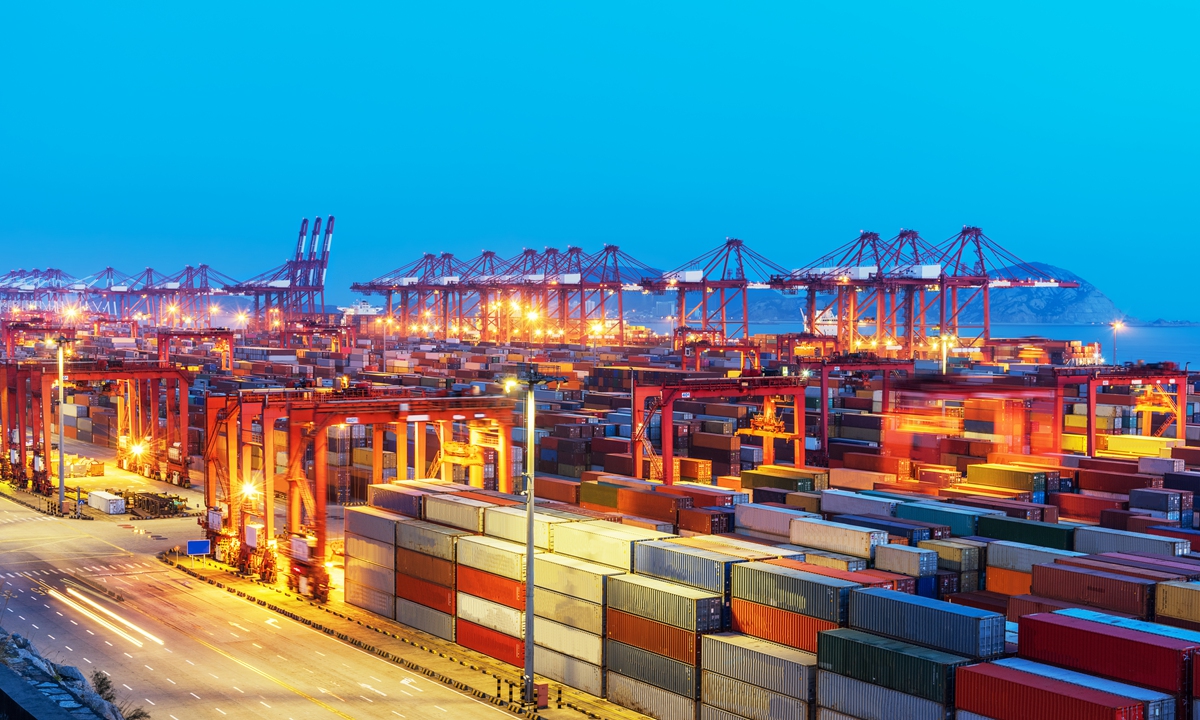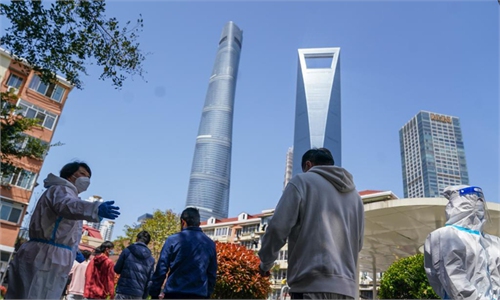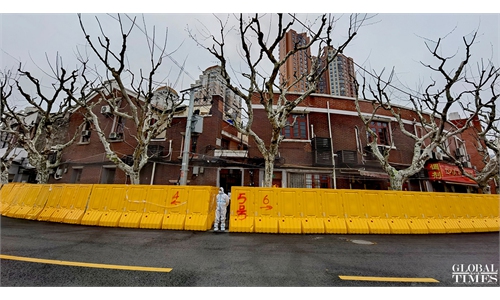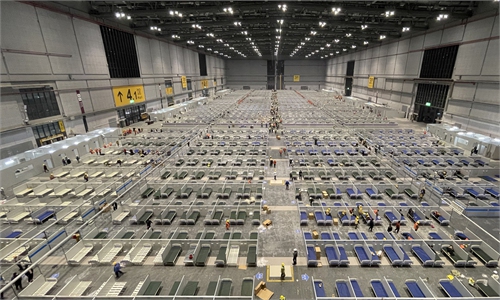China's State Council calls for ensuring operation of Shanghai port
Move comes as nation tackles logistics issues, minimizes economic impact of COVID-19

A container terminal of Yangshan Port in Shanghai Photo: VCG
China's State Council asked shipping companies on Thursday not to "randomly" skip the Port of Shanghai and called for coordinated efforts by relevant parties to unclog containers, especially refrigerated containers, as the country moves to ensure smooth logistics amid disruptions posed by COVID-19 outbreaks and minimize the impact on economic activities.
The Joint Prevention and Control Mechanism of the State Council on Thursday asked the Shanghai transportation authorities and the Shanghai International Port Group (SIPG) for better coordination with global shipping companies to ensure enough ships call the port.
An industry expert said coordinated efforts from a wide range of departments and companies are needed to ease the current congestion at the world's largest port.
Different links on the logistics chain, from shipping companies and cargo owners to shipping agents and freight trucks, need to work more closely to enhance the turnover of goods at the port.
Relevant parties should keep dynamic communications with shipping companies on the number of reefer containers inside the port and update power sockets for such containers carrying refrigerated cargoes to ensure the stable and orderly handling of the containers.
The statement's concerns on the transportation of containers were similar to a circular issued by the Ministry of Transport on Tuesday that focused on issues weighing down on seaborne trade.
It also came after the State Council asked local governments on Monday to "make every effort" to ensure the smooth movement of freight through the logistics system amid epidemic controls, a clear response to regional actions that have caused growing disruptions to supply chains and trade flows.
Wu Minghua, a shipping expert based in Shanghai, said the repeated emphasis on containers stranded at ports underlines the dire situation.
Refrigerated containers of cold-chain logistics and containers with chemical goods saw the worst bottleneck, Wu said.
Many COVID-19 cases were found to be associated with imported cold-chain goods.
Unclogging these bottlenecks requires coordinated efforts from a chain of departments, from customs, quarantine and port workers to freight car drivers, Wu said.
Since Shanghai entered a closed-loop management, many shipping companies, including Maersk, have redirected their ships to other ports.
Separately, the State Council banned local governments from suspending rotating shifts of seamen serving on international routes.
Approval from provincial-level authorities and public announcements are required before such actions are taken.
Areas that do not announce the suspension of rotation of seamen cannot refuse or delay the replacement for any reasons to ensure "social harmony" on the international seaborne logistic chain.
Seamen need to provide nucleic acid test results 48 and 24 hours before landing.
The SIPG is the exclusive operator of all the public terminals in the Port of Shanghai which handled 47 million standard containers in 2021 and has been the world's top container port for 12 consecutive years.
The SIPG said it had taken precautions in face of the new outbreak to ensure a smooth container flow, according to a press release on the port's website. Measures include easing container congestion of ships to neighboring river ports, paperless documentation and developing an anti-epidemic pass for drivers transporting containers in and out of the ports.
To ease a logistics bottleneck happening in many parts of the country, the central government on Thursday again called for smooth freight transport and ordered the establishment of a unified and standard road freight pass system to ensure the transport of key supplies.




